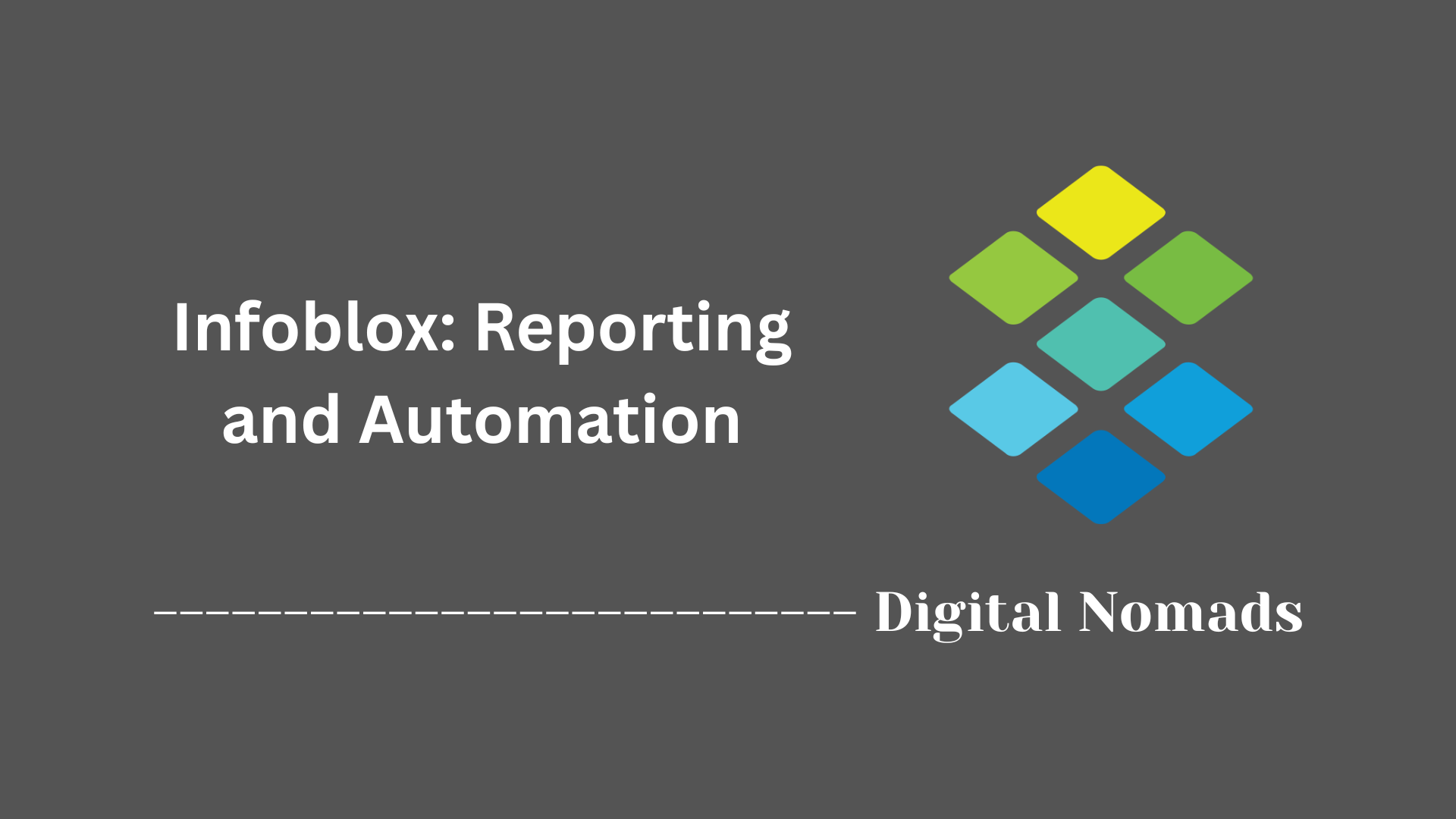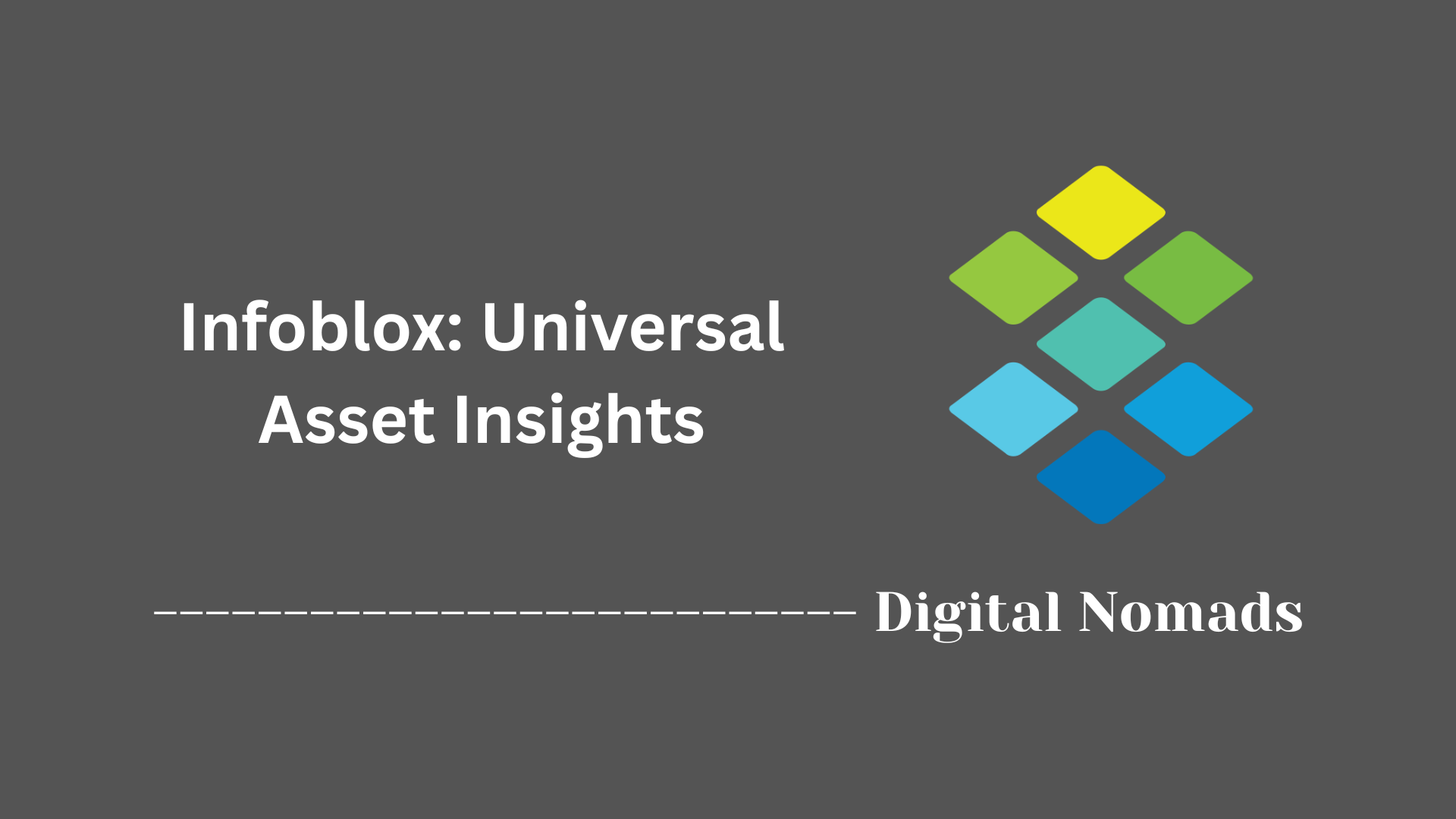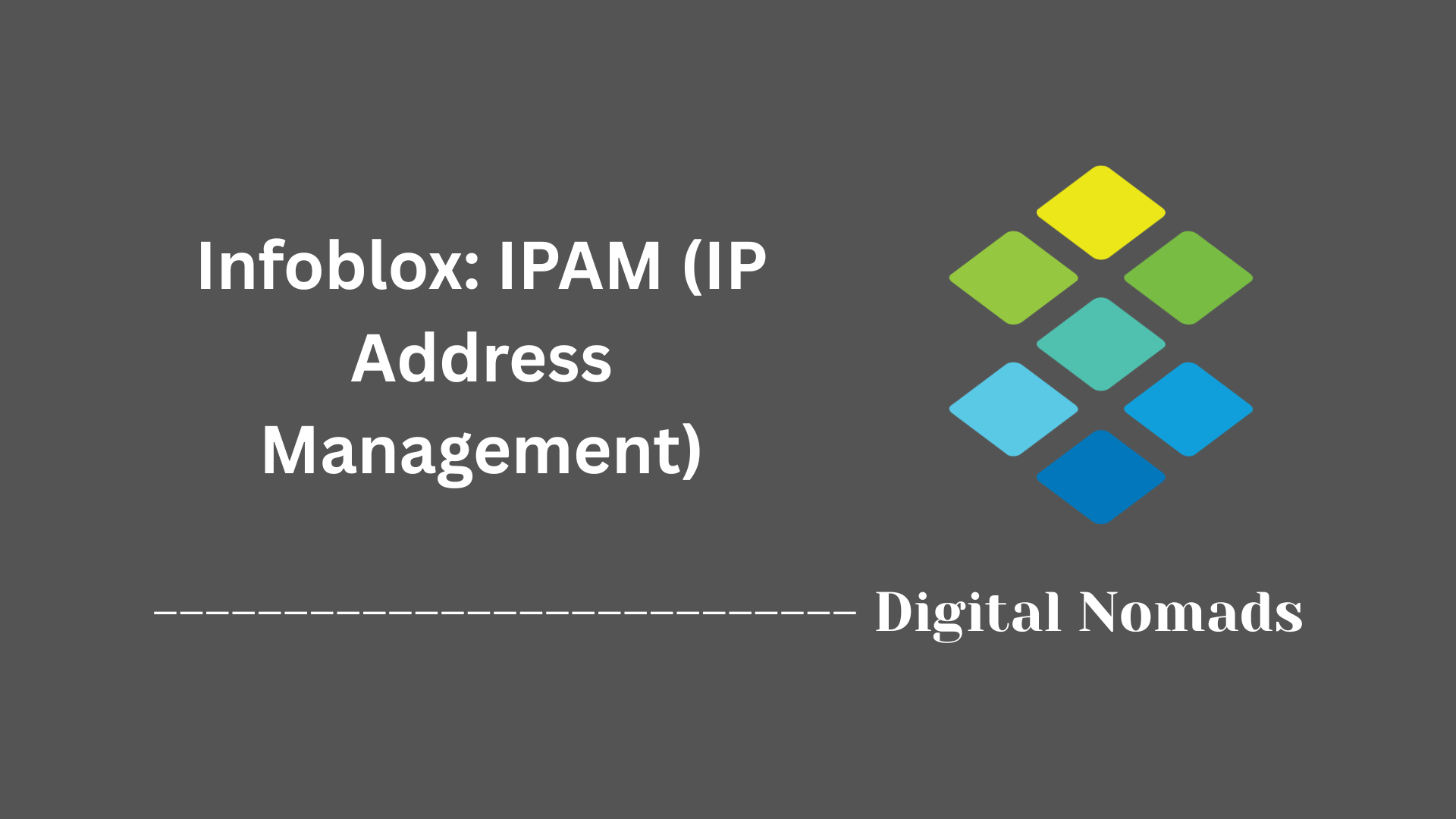Table of Contents
- Overview
- Core Components
- Supported Automation and Ecosystem
- Security and Compliance
- Real-World Applications
- Deployment Options
- Conclusion
Core Components
These are the essential building blocks that make the Infoblox Unified Management Platform work for managing critical network services across hybrid and multi-cloud environments:
- Infoblox Grid Technology: The patented distributed database architecture that links physical, virtual, and cloud appliances into a unified system. It provides high availability through sophisticated distribution embedded within each appliance, ensuring network reliability and continuous operations.
- Grid Master: The central control point that holds and maintains the master database of the Grid. It pushes global configuration data to Grid Members, monitors member operations, synchronizes changes back into the central database, and prevents single points of failure through interconnected failover mechanisms.
- Grid Master Candidates: Designated members eligible to assume the Grid Master role through the promotion process. These candidates maintain and can be promoted to replace the current Grid Master if needed, ensuring continuous administrative access to the Grid.
- Universal DDI Management: The industry's first comprehensive solution for unified critical network services management that streamlines automation across hybrid, multi-cloud environments. It provides policy-driven network and IP address allocation, improving efficiency and reliability while preventing network outages.
- Universal Asset Insights: An infrastructure-wide central repository that enables comprehensive visibility and contextual details of assets across hybrid, multi-cloud environments. It automates discovery and analysis, continuously updates IPAM inventory, and automatically identifies unused IP addresses and zombie workloads.
- NIOS-X as a Service: The industry's first infrastructure-free deployment model for critical network services like DNS and DHCP. It delivers managed services close to users and workloads without requiring infrastructure deployment, providing operational simplicity for CloudOps teams while maintaining resilience and security.
- Infoblox Portal: The unified SaaS management portal that enables centralized operations and critical network services management across hybrid, multi-cloud environments. Administrators can manage NIOS directly from the portal, including starting and stopping services, and performing create, read, update, and delete operations on DDI objects.
Supported Automation and Ecosystem
These are the comprehensive automation capabilities and ecosystem integrations that make the Infoblox Unified Management Platform work seamlessly with existing infrastructure and third-party solutions:
-
RESTful APIs and WAPI:
Industry-standard REST APIs and Web API (WAPI) interfaces that enable customized integration with third-party applications and platforms. The APIs support HTTP methods for operations and provide input/output in JSON and XML formats, facilitating seamless data exchange and automation workflows.
- Terraform Provider Plugin: Official Terraform provider plugin that extends IPAM and DNS services into Infrastructure as Code deployments. Compatible with NIOS 8.5 and later, it supports create, update, and delete operations for networks, DNS records, and includes next available network and IP functionality for automated provisioning.
- Ansible Module Collections: Pre-built Ansible modules for NIOS that facilitate DNS and IPAM automation of VM workloads across multiple platforms. The collection includes modules for managing A records, AAAA records, host records, networks, and DHCP configurations, enabling infrastructure automation and configuration management.
- Cloud Provider Integrations: Native integrations with leading public cloud platforms including Amazon Web Services, Microsoft Azure, Google Cloud Platform, and Oracle Cloud. These integrations enable centralized management of critical network services across hybrid and multi-cloud environments with automated discovery and provisioning capabilities.
- Python SDK and Client Libraries: Comprehensive Python client libraries and SDKs for interacting with NIOS over WAPI. These libraries provide both low-level connector modules and high-level object interfaces, enabling developers to build custom automation solutions and integrate Infoblox functionality into existing applications.
- Security Ecosystem Integrations: Extensive third-party security integrations with SIEM, SOAR, vulnerability management, and endpoint security solutions. These integrations share threat intelligence, contextual network data, and enable automated response capabilities across security tools like Splunk, ServiceNow, FortiSIEM, and Cortex XSOAR.
- Webhook and Event Automation: Webhook capabilities that enable real-time event notifications and bi-directional data exchange with external systems. These webhooks support automated workflows, incident response, and integration with orchestration platforms for immediate response to network changes and security events.
- Ecosystem Marketplace: Centralized marketplace portal that provides access to certified integrations, pre-built automation scripts, and third-party applications. The marketplace enables customers to discover, deploy, and manage automation applications that extend Infoblox functionality across their technology stack.
Security and Compliance
Infoblox Unified Management Platform delivers enterprise-grade security and compliance capabilities to protect critical network infrastructure and meet stringent regulatory requirements:
- Threat Defense and Protection: Advanced DNS-based security that operates at the foundational network layer to detect and block threats that other solutions miss, including DNS tunneling, DGA attacks, and data exfiltration attempts. The platform monitors over 180,000 threat clusters and provides real-time threat intelligence to prevent malicious activities before they can establish connections[3][6].
- Encryption and Data Protection: Comprehensive encryption capabilities using industry-standard protocols including TLS 1.2/1.3 for data in transit and AES-256 for data at rest. The platform supports DNS over HTTPS (DoH) and DNS over TLS (DoT) to provide encrypted DNS communications while maintaining visibility and control over DNS queries[25][28][34].
- Access Control and Authentication: Role-based access control (RBAC) system that enables granular permission management through user groups, admin roles, and access policies. Supports integration with enterprise identity providers including Active Directory, LDAP, SAML, RADIUS, and TACACS+ for centralized authentication and authorization[24
- Regulatory Compliance Certifications: Multiple compliance certifications including FedRAMP Moderate Authorization, SOC 2 Type II, ISO/IEC 27001:2022, FIPS 140-2 Level 2, Common Criteria EAL2+, and various government security standards to meet enterprise and federal requirements for data protection and security controls[2][11][43][49].
- Audit Logging and Monitoring: Comprehensive audit trail capabilities that record all administrative activities, configuration changes, and security events with logs maintained for 90 days online and one year offline. All logs are protected from unauthorized modification and can be exported to external SIEM systems or syslog servers for centralized monitoring and compliance reporting[28][41][50].
- Zero Trust Architecture Support: Native integration with Zero Trust security frameworks by providing continuous validation of DNS queries, device identification, and policy enforcement at the DNS layer. Enables micro-segmentation and least-privilege access principles through DNS-based controls and threat intelligence[42][45][51].
Real-World Applications
Infoblox Unified Management Platform demonstrates proven success across diverse industries and deployment scenarios, enabling organizations to modernize their network infrastructure while maintaining security and operational efficiency:
- Large Enterprise Network Consolidation: Organizations with complex multi-vendor environments leverage Infoblox to replace fragmented DNS, DHCP, and IPAM solutions. A Fortune 500 manufacturing company consolidated millions of IP addresses under single-pane management, enabling efficient handling of mergers and acquisitions while maintaining business continuity. The solution provides high availability and disaster recovery capabilities essential for global operations with multiple data centers and branch locations.
- Hybrid and Multi-Cloud Deployments: Modern enterprises use Infoblox Universal DDI to unify critical network services across AWS, Azure, Google Cloud, and on-premises environments. The platform enables consistent policy enforcement, automated IP allocation, and seamless DNS management across cloud boundaries. Organizations report up to 79% operational savings and 96% faster application deployments through centralized hybrid cloud management.
- Branch Office and Remote Site Automation: NIOS-X as a Service delivers infrastructure-free DDI to distributed locations, elim branch offices. Organizations deploy DNS and DHCP services through simple IPsec tunnels and local routers, providing enterprise-grade network services without on-site IT infrastructure. This approach significantly reduces deployment complexity and ongoing maintenance overhead while ensuring local survivability.
- Government and Defense Implementations: The U.S. Department of Defense and other government agencies implement Infoblox DDI for mission-critical operations requiring high security and compliance standards. These deployments support heterogeneous environments with Windows and Linux systems while integrating with Active Directory for centralized authentication. The solution provides comprehensive audit trails and meets federal security requirements including FedRAMP authorization.
- Healthcare Network Modernization: Healthcare organizations use Infoblox to support HIPAA compliance, secure IoT medical devices, and enable telehealth services. Implementations ensure always-on availability for patient care systems while providing DNS-based security to protect sensitive patient data. The platform automates network services for medical device connectivity and supports distributed healthcare delivery models.
- Financial Services Security and Automation: Financial institutions deploy Infoblox to replace complex multi-vendor DNS environments while enhancing security posture. Organizations report millions in annual savings through infrastructure consolidation and automated network management. The platform provides the reliability and disaster recovery capabilities required for high-frequency trading and customer-facing banking applications.
- Retail and Telecommunications Scalability: Major retailers and telecom operators leverage Infoblox Grid technology to support thousands of locations and millions of customers. The platform enables rapid scaling for 5G network deployments, omnichannel retail operations, and high-volume customer loyalty programs. Solutions provide microsecond DNS latency and DDoS protection essential for customer-facing services.
Deployment Options
Infoblox Unified Management Platform offers comprehensive deployment flexibility through multiple infrastructure models, enabling organizations to choose the optimal approach based on their specific operational requirements, security constraints, and business objectives:
- NIOS-X as a Service (Infrastructure-Free Cloud Delivery): The industry's most advanced cloud delivery solution providing completely serverless DDI services for hybrid and multi-cloud environments. This deployment model eliminates the need for physical or virtual appliances by delivering DNS and DHCP services through IPsec tunnels from public cloud points of presence. Organizations can rapidly deploy critical network services in minutes without requiring on-site infrastructure, making it ideal for distributed locations, branch offices, and environments where appliance deployment is not feasible.
- NIOS-X Virtual Servers (Software-Defined Infrastructure): Scalable virtual appliance solutions designed for modern virtualized and containerized environments including VMware vSphere, Microsoft Hyper-V, Nutanix AHV, and KVM hypervisors. These deployments adapt dynamically to changing business requirements through suggested site tiers and reference specifications that simplify capacity planning and performance optimization. Virtual servers provide the flexibility to scale resources on-demand while maintaining enterprise-grade DDI capabilities.
- NIOS-X Physical Servers (Purpose-Built Hardware): Purpose-built physical appliances optimized for branch offices local survivability and guaranteed performance. These appliances maintain critical operations when primary data center connections fail and serve as reliable alternatives for environments demanding dedicated hardware resources. Physical servers provide consistent performance and eliminate dependencies on shared virtualization infrastructure.
- Hybrid Cloud Integration (Multi-Platform Orchestration): Native integration capabilities across leading public cloud platforms including Amazon Web Services, Microsoft Azure, Google Cloud Platform, and Oracle Cloud. The platform provides unified management of both cloud-native DNS services and on-premises infrastructure through automated provisioning, synchronization, and policy enforcement. Organizations can seamlessly extend DDI services across cloud boundaries while maintaining consistent operational procedures.
- Grid Architecture (Distributed High Availability): Infoblox's patented Grid technology enables linking diverse network appliances into a single, integrated system providing distributed database capabilities and eliminating single points of failure. Grid deployments support physical, virtual, and cloud-based appliances in any combination, allowing organizations to deploy Grid Masters, Grid Master Candidates, and Grid Members across different infrastructure types for optimal redundancy and performance distribution.
- Container and Kubernetes Integration (Cloud-Native Orchestration): Advanced container deployment support through CNI IPAM drivers for Kubernetes environments and integration with modern orchestration platforms. The platform provides automated IP address management for containerized workloads, supports multiple network drivers including bridge, ipvlan, and macvlan, and enables Infrastructure as Code approaches through Terraform, Ansible, and ServiceNow integrations for DevOps teams.
- High Availability Configurations (Mission-Critical Resilience): Multiple high availability deployment patterns including active-passive HA pairs, active-active configurations, and distributed Grid architectures supporting continuous uptime requirements. Organizations can deploy redundant systems across geographically separated locations with automated failover capabilities, maintaining DNS and DHCP services during planned maintenance or unexpected outages while supporting disaster recovery scenarios.
Conclusion
The journey through the Infoblox Unified Management Platform reveals a comprehensive solution that fundamentally transforms how organizations approach network infrastructure management in today's hybrid, multi-cloud environment. Through extensive examination of its capabilities, we've discovered that Infoblox delivers far more than traditional DNS, DHCP, and IPAM services—it provides the foundation for modern, resilient, and secure network operations.
Transformational Business Value
The evidence is compelling: organizations implementing Infoblox DDI solutions report remarkable returns, with a Forrester Economic Impact study documenting a 346% ROI and net present value of $8.75 million for a composite organizationinfoblox.com+1. These impressive figures stem from multiple value streams: up to $7.1 million in legacy infrastructure savings, 70% reduction in networking engineer time spent on DDI activities, and dramatic improvements in system availability from 88% to 99.995%innetworktech.com. Beyond the financial metrics, organizations experience enhanced operational efficiency, reduced manual errors, and the ability to redirect skilled personnel toward strategic initiatives rather than routine maintenance taskswei.com+1.
Unified Platform Advantages
The platform's strength lies in its ability to break down traditional operational silos between NetOps, SecOps, and CloudOps teamscybermagazine.com+1. Rather than managing disparate systems, organizations gain network services across hybrid and multi-cloud environments. This unification enables consistent policy enforcement, streamlined automation, and comprehensive visibility that was previously impossible with fragmented solutions. The result is not just operational simplification, but a foundation that supports business agility and rapid response to changing requirements.
Future-Ready Architecture
Perhaps most importantly, Infoblox positions organizations for future growth and technological advancement. The platform's support for Zero Trust architectures, advanced threat detection capabilities, and infrastructure-free deployment models through NIOS-X as a Service demonstrates its forward-looking designinfoblox.com. Organizations can confidently pursue digital transformation initiatives, knowing their network foundation can scale, adapt, and secure emerging technologies and business models.
Security and Compliance Excellence
In an era where network security is paramount, Infoblox delivers enterprise-grade protection through DNS-based threat intelligence, comprehensive encryption, and robust compliance capabilities. The platform monitors over 180,000 threat clusters and provides real-time threat intelligence, while maintaining certifications including FedRAMP, SOC 2 Type II, and ISO/IEC 27001:2022. This security foundation enables organizations to confidently expand their digital footprint without compromising protection.
Proven Deployment Flexibility
The platform's deployment options—from physical appliances to virtual servers to infrastructure-free cloud delivery—ensure that organizations can adopt Infoblox solutions regardless of their current infrastructure constraints or strategic direction. This flexibility, combined with the Grid architecture's ability to link diverse appliances into unified systems, provides both immediate value and long-term adaptability.
Real-World Impact
Across industries—from healthcare organizations ensuring HIPAA compliance to financial institutions requiring microsecond DNS latency for trading operations—Infoblox consistently delivers measurable improvements in network reliability, security posture, and operational efficiency. The platform enables organizations to support everything from IoT device management to hybrid workplace transformation while maintaining the performance and security standards that modern business demands.
As we conclude this comprehensive exploration of the Infoblox Unified Management Platform, it's clear that this solution represents more than an incremental improvement to network management—it's a strategic enabler of digital transformation. Organizations implementing Infoblox don't just solve today's networking challenges; they build the foundation for tomorrow's opportunities.
Whether you're managing a complex enterprise network, securing a distributed hybrid environment, or planning your organization's cloud journey, the Infoblox platform provides the visibility, control, and automation necessary to succeed in our interconnected world.
Thank you for joining us on this detailed journey through the capabilities and benefits of the Infoblox Unified Management Platform. We hope this exploration has provided valuable insights to help inform your network infrastructure decisions and strategic planning.
Stay connected, stay secure, and continue innovating with confidence.




